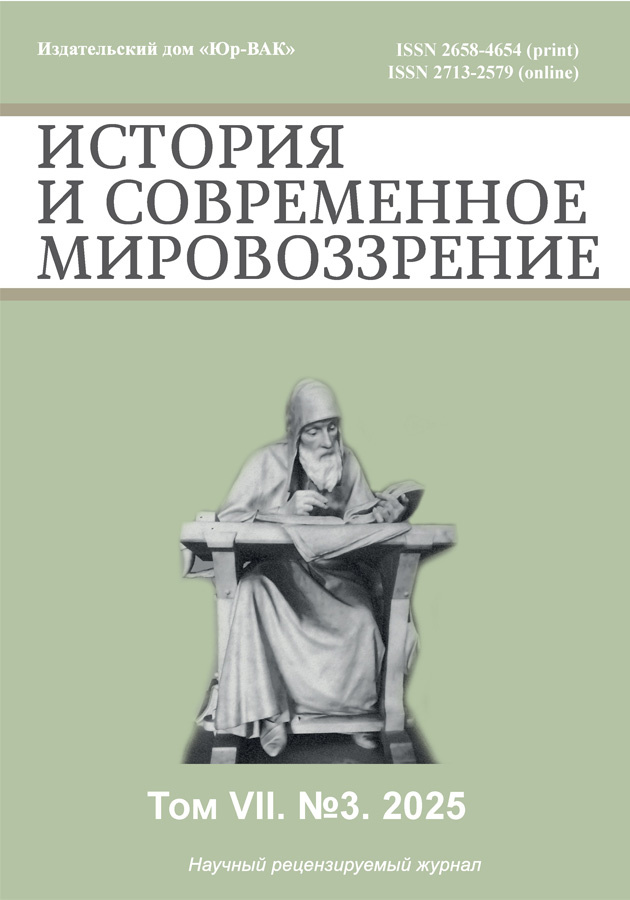Protection of historical memory of participants of the Afghan War (1979–1989) in Ekaterinburg: monumental policy, toponymy, museum representations, commemorative practices
- Authors: Speransky P.A.1,2,3
-
Affiliations:
- Institute of History and Archeology of the Ural Branch of the Russian Academy of Sciences
- Ural Federal University named after the First President of Russia B. N. Yeltsin
- Municipal Museum of Memory of Internationalist Soldiers «Shuravi»
- Issue: Vol 7, No 3 (2025)
- Pages: 163-169
- Section: DOCUMENTARIES, DOCUMENTATION, ARCHIVAL STUDIES
- URL: https://journals.eco-vector.com/2658-4654/article/view/695648
- DOI: https://doi.org/10.33693/2658-4654-2025-7-3-163-169
- EDN: https://elibrary.ru/sbdnmv
- ID: 695648
Cite item
Abstract
The paper examines the mechanisms of preserving the historical memory of the participants of the Afghan War (1979–1989) using the city of Ekaterinburg as an example. It analyzes the monumental policy pursued in the city, expressed in the installation of monuments, memorial complexes and other memorial signs to the soldiers of the Afghan war; changes in toponymy associated with assigning the names of the Ural internationalist soldiers to city streets. Examples of museum representations and commemorative practices aimed at preserving the historical memory of the war in Afghanistan are given. A conclusion is made about the need for further study and improvement of the tools for mobilizing collective memory of the Afghan military conflict.
Full Text
About the authors
Peter A. Speransky
Institute of History and Archeology of the Ural Branch of the Russian Academy of Sciences; Ural Federal University named after the First President of Russia B. N. Yeltsin; Municipal Museum of Memory of Internationalist Soldiers «Shuravi»
Author for correspondence.
Email: pasperanskiy@mail.ru
SPIN-code: 9148-8047
junior researcher of Center for Political and Socio-Cultural History, Senior lecturer of the Department of History of Russia
Russian Federation, Yekaterinburg; Yekaterinburg; YekaterinburgReferences
- Anikin D.A. The Politics of Memory in the Contemporary World: Spaces, Topoi, and Networks. Saratov: Nauka, 2018. 173 p. (in Rus.).
- Assman A. The Long Shadow of the Past: Memorial Culture and Historical Policy. Moscow: Novoye Literaturnoye Obozrenie, 2014. 328 p. (in Rus.).
- Voitenko A.A. Tulips Turn Black with Blood. Monuments to Sverdlovsk Residents Who Participated in Combat Operations in Afghanistan, the North Caucasus, and Other Hot Spots of the Second Half of the 20th — Early 21st Centuries. Yekaterinburg: Genri Pushel, 2019. 224 p. (in Rus.).
- Malinova O.Yu. Constructing Meanings: A Study of Symbolic Politics in Contemporary Russia. Moscow: INION RAS, 2013. 421 p. (in Rus.).
- Miller A.I. Russia: Power and History. Pro et Contra. 2009. No. 3–4. Pp. 6–23. (in Rus.).
- Miller A.I. Methodological Problems in the Study of Memory Politics: Resolved, Unresolved, and Insoluble / Methodological Issues in the Study of Memory Politics. St. Petersburg: 2018. Pp. 4–11. (in Rus.).
- Repina L.P. Cultural Memory and Problems of Historiography (Historiographical Notes). Moscow: HSE University. 44 p. (in Rus.).
- Speransky P.A., Chernyaev D.M. Preserving Historical Memory and Patriotic Education of Youth: The Experience of the Shuravi Museum // Victory over Fascism in the Context of Russia's Contemporary Challenges. 14th Ural Military-Historical Readings. Collection of Scientific Articles. Yekaterinburg: Sokrat, 2025. Pp. 326–330. (in Rus.).
- Halbwachs M. Social Framework of Memory. Moscow: New Publishing House, 2007. 348 p. (in Rus.).
Supplementary files










